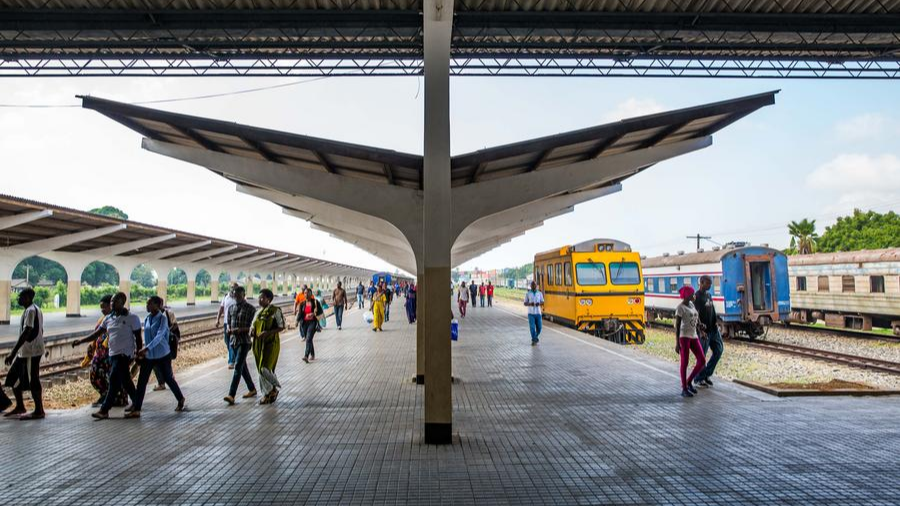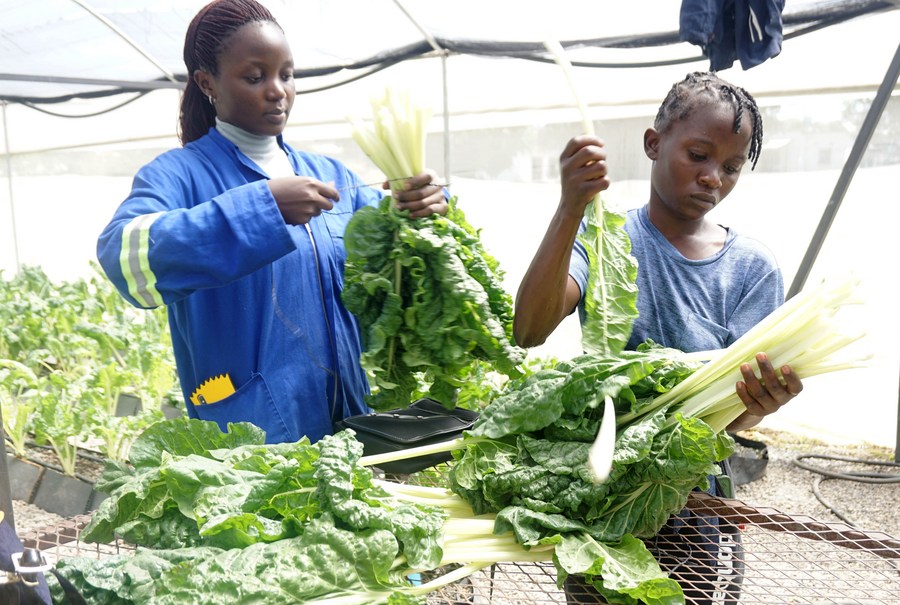
Passengers leave a train after arriving at the Dar Es Salaam station of Tanzania-Zambia Railway in Dar Es Salaam, capital of Tanzania, February 14, 2019. [Photo/Xinhua]
By Stephen Ndegwa
As Zambia and China celebrate 60 years of diplomatic ties, their relationship stands as a powerful testament to mutual respect, growth and sustainable development. When Zambia became the first southern African country to establish formal relations with China in 1964, few could have foreseen the profound impact this partnership would have across sectors such as infrastructure, agriculture and energy.
Today, this cooperation has not only strengthened Zambia's economy but has also laid the groundwork for other African nations aiming to foster self-reliance, capacity-building, and inclusive growth.
One of the most transformative aspects of this relationship is infrastructure development. From the early Tanzania-Zambia Railway (TAZARA Railway), which symbolized both China's steadfast support and Zambia's newfound connectivity with East Africa, to modern highways and urban projects, infrastructure has remained central to the China-Zambia partnership. As Zambia's needs evolve, the focus shifts from basic connectivity to future-ready, smart infrastructure.
The next generation of projects could incorporate digital technology and green design, creating "smart" urban areas across Zambia. The adoption of eco-friendly construction practices, renewable-powered facilities, and intelligent transport systems would enable Zambia's urban centers to develop sustainably, responding to unique demographic and environmental demands while setting an example for other African nations. Investing in these next-generation projects would reduce Zambia's reliance on imported fuels, lower carbon emissions and enhance living standards.
A key component of this vision is promoting regional integration through cross-border infrastructure. Collaborative trade and logistics corridors with neighboring countries could streamline the movement of goods and services across southern Africa, establishing Zambia as a critical logistics hub and fostering regional interdependence. By connecting more efficiently with regional economies, Zambia can amplify its role in Africa's growth and resilience.
Agriculture, which employs most of Zambia's rural population, remains the backbone of its economy. However, challenges like climate change, reliance on traditional practices and commodity price fluctuations have hindered growth. China's extensive experience in transforming its own agricultural sector offers valuable insights and resources. With support from China, Zambia can introduce high-yield crops, resilient seed varieties, and advanced farming technologies to boost productivity, enhance food security and diversify agricultural outputs.
Moreover, investment in agro-processing industries enables Zambia to move from raw exports to higher-value goods, increasing revenues and creating rural employment opportunities. This approach provides training and technology transfer that equips Zambian farmers with the skills needed to succeed in modern agriculture, strengthening the sector and promoting resilience.

Young people prepare freshly harvested vegetables for sale at People's Process on Housing and Poverty in Zambia, a grassroots organization, in Chibombo District, central Zambia, April 17, 2024. [Photo/Xinhua]
The impacts of these agricultural advancements can also extend beyond Zambia's borders. Through exchange programs and shared knowledge, Zambia can become an agricultural knowledge hub for neighboring countries, fostering a continent-wide boost in productivity and food security. As a model for sustainable agricultural transformation, Zambia's progress could encourage other African nations to adopt similar practices, creating a ripple effect that strengthens Africa's economic independence.
Energy is another promising frontier for China-Zambia cooperation, particularly as Zambia looks to green alternatives. Zambia's abundant rivers and vast, sun-rich landscapes make it ideal for renewable energy initiatives such as solar and hydropower. With China's expertise, Zambia can build a diversified energy portfolio that powers industries while reducing environmental impact.
Moreover, decentralized power solutions such as community-based solar grids and small-scale hydroelectric projects allow Zambia to expand rural energy access without the prohibitive costs of a nationwide grid. Renewable energy projects can create high-quality jobs and encourage skills training in renewable technologies, fostering a workforce prepared for the global shift toward sustainable industries.
As Zambia advances in green energy, it has the potential to influence the regional energy landscape by establishing cross-border energy-sharing agreements with countries lacking similar resources. This approach positions Zambia as a regional leader while demonstrating Africa's ability to drive climate-friendly economic growth.
Investing in African expertise is essential for Zambia's independence, and cooperation must prioritize training Zambians to manage, expand and innovate within infrastructure, agriculture and energy projects. Specialized training centers and partnerships with Chinese universities would empower Zambians with the skills to lead in these industries, ultimately creating a pool of professionals capable of driving development independently and contributing to the broader economic landscape.
This focus on capacity building strengthens not only Zambia but the continent as a whole. The China-Zambia model emphasizes empowerment over dependency, setting a new standard for international cooperation. It echoes the African Union's Agenda 2063, which envisions a prosperous, self-reliant Africa driven by its own citizens. As Zambia's influence grows, the knowledge gained from this partnership can guide other African countries in developing their economies sustainably and independently.
The China-Zambia partnership stands as an exemplar for Africa-China relations, demonstrating how respectful, mutually beneficial collaborations can drive meaningful progress. By focusing on infrastructure, agriculture and green energy, China and Zambia are building a future of transformative potential, not only for Zambia but for Africa as a whole. As they look forward, they continue to prove that with visionary cooperation and an emphasis on local empowerment, lasting prosperity is not only possible but within reach.
Stephen Ndegwa, a special commentator on current affairs for CGTN, is the Executive Director of South-South Dialogues, a Nairobi-based communications development think tank.

 中文
中文



